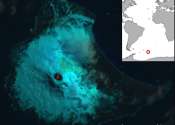Remote islands: Stepping stones to understanding evolution
For millions of years, remote islands have been hotbeds of biodiversity, where unique species have flourished. Scientists have proposed different theories to explain how animals and plants colonize and evolve on islands but ...








